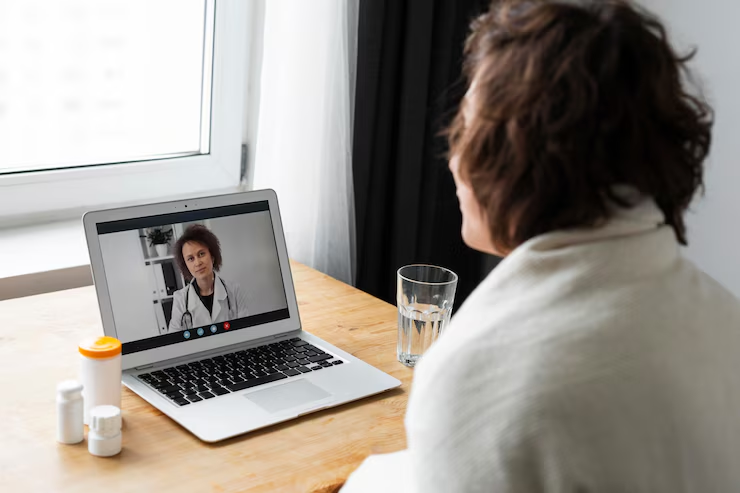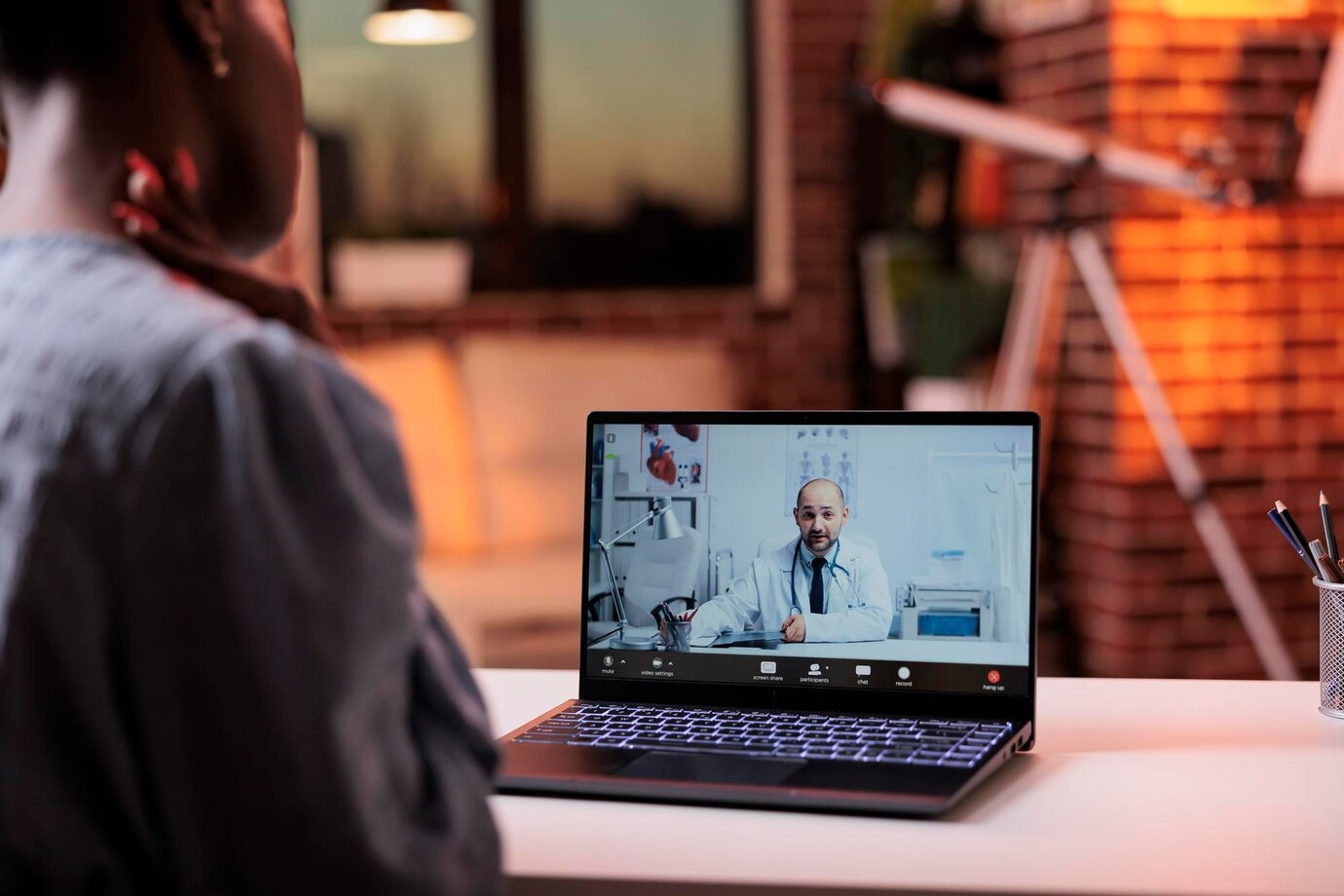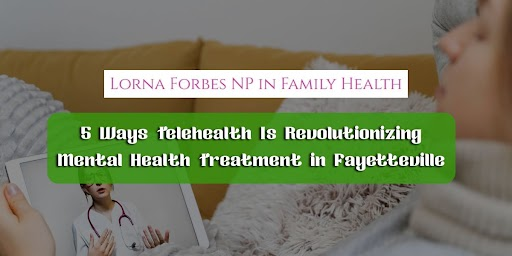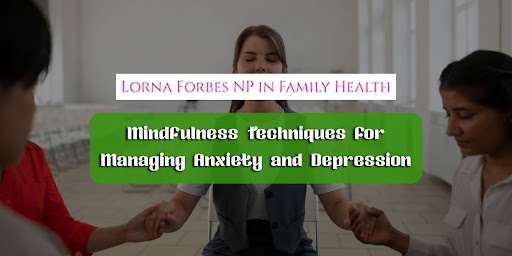5 Ways Telehealth Is Revolutionizing Mental Health Treatment in Fayetteville
Across the United States, mental health challenges affect millions of individuals, yet barriers such as societal stigma, limited therapy services, and logistical hurdles often prevent timely access to care. In New York State,recent data indicate that 21.1% of adults experience mental illness and 5.1% struggle with severe mental health conditions. For residents of Fayetteville, a suburban village of 4,220 people in Onondaga County, these barriers can feel especially acute.
Telehealth has emerged as a transformative solution, leveraging technology to deliver mental health services directly into patients’ homes. By breaking down geographical, financial, and social barriers, telehealth provides Fayetteville residents with unprecedented access to therapy, psychiatric evaluation, and medical arrangements.
This blog explores how telehealth is reshaping mental health care in Fayetteville, NY, empowering residents to overcome obstacles and achieve wellness.
The Mental Health Landscape in Fayetteville, NY
In Fayetteville, NY, despite the socioeconomic strengths of the residents there, local mental health needs reflect broader state and national trends:
- High prevalence of anxiety and depression: According to state comptroller reports, more than 21% of New Yorkers report symptoms of mental illness, with anxiety and depressive disorders among the most common.
- Limited local resources: While the Fayetteville-Manlius Central School District and community organizations offer supportive programs, there remains a shortage of licensed mental health professionals relative to demand.
- Stigma and privacy concerns: In small communities, concerns about confidentiality and social judgment can deter individuals from seeking help.
Also, besides these statistical figures and before the emergence of telehealth services, the Fayetteville people faced multiple hurdles such as:
- Geographic distance: Though near Syracuse, traveling to appointments can be time-consuming, especially for those without reliable transportation or those balancing work and family responsibilities.
- Limited appointment availability: High demand for in-person therapy often leads to long wait times, sometimes weeks or months before a new patient can be seen.
- Financial constraints: Even with insurance, deductibles and travel costs can add up, discouraging ongoing treatment.
These barriers not only delay care but can exacerbate mental health crises, underscoring the need for innovative delivery models.
The Rise of Telehealth in Mental Health Care in Fayetteville, NY

Over the past few years, Fayetteville, NY, has seen a significant surge in the use of telehealth for mental health care. This growth was accelerated by the COVID-19 pandemic, but even now, the trend continues because of the convenience, privacy, and accessibility it offers.
Telehealth allows individuals to access therapy, psychiatric evaluations, medication management, and counseling from the comfort of their homes. Especially in areas like Fayetteville, where people may have busy schedules or limited access to in-person care, telehealth has broken down barriers, making mental health support more readily available.
Clients no longer have to deal with travel time, transportation issues, or long wait times. Instead, they can schedule appointments that fit their lifestyle and attend sessions via secure video calls or phone consultations.
Additionally, telehealth has helped reduce the social stigma often associated with visiting mental health clinics — it empowers people to seek help in a way that feels safe and familiar.
As a result, more people are getting the support they need when they need it, leading to better mental health outcomes across the Fayetteville community.
Key Benefits of Telehealth for Fayetteville Residents

1. Enhanced Accessibility
Telehealth eliminates travel time and removes geographic barriers, allowing patients from all corners of the village—and surrounding areas—to connect with providers from their homes. This is particularly valuable for individuals with mobility issues, those reliant on public transportation, or families with young children.
2. Reduced Social Stigma
Accessing therapy from the comfort of home minimizes the risk of being recognized at a clinic, helping patients seek care without fear of social judgment. Virtual waiting rooms and encrypted platforms further protect privacy.
3. Improved Continuity of Care
Virtual check-ins enable more frequent interactions between appointments, facilitating early intervention when symptoms change. This continuity is critical for managing chronic conditions like bipolar disorder, ADHD, and anxiety.
4. Flexible Scheduling
Telehealth platforms offer evening and weekend slots, empowering patients to fit treatment into busy work or school schedules without taking extended time off.
5. Cost Savings
Patients save on transportation costs, parking fees, and time away from work. For providers, telehealth can streamline administrative tasks, potentially lowering overhead and improving appointment availability.
Lorna Forbes, NP in Family Health: A Beacon of Hope.
The rise of telehealth has reshaped mental health care across the country, and nowhere is this transformation more evident than in Fayetteville, NY — thanks in large part to Lorna Forbes, NP in Family Health.
Through her innovative and compassionate approach, Lorna Forbes has set a new standard for what telehealth mental health services can achieve.
At Lorna Forbes NP in Family Health, patients experience the perfect blend of cutting-edge treatments, evidence-based therapies, and personalized care — all accessible through secure telehealth platforms and in-person options. By offering services like Spravato® nasal spray for treatment-resistant depression, Transcranial Magnetic Stimulation (TMS), psychotherapy, and comprehensive medication management, Lorna has made world-class mental health care available to individuals without them ever needing to leave their homes.
What sets Lorna apart is her unwavering commitment to patient-centered care. Her practice specializes in treating a wide range of conditions, including:
- Major Depressive Disorder
- Generalized Anxiety Disorder
- Social Anxiety
- Bipolar Disorder
- ADHD
- Schizophrenia
- Borderline Personality Disorder
Each treatment plan is thoughtfully tailored, often incorporating therapies like Cognitive Behavioral Therapy (CBT), Dialectical Behavior Therapy (DBT), and Mindfulness Therapy — ensuring that patients receive the most effective, individualized support for their specific needs.
By combining clinical excellence with compassionate delivery, Lorna Forbes has truly revolutionized telehealth in Fayetteville by:
- Making advanced treatments more accessible through virtual consultations.
- Eliminating traditional barriers like travel time, stigma, and scheduling inflexibility.
- Fostering a sense of resilience, balance, and hope for individuals who may have otherwise gone untreated.
The exceptional services and practices offer a blend of in-person and telehealth services, ensuring flexibility and accessibility for patients. Their comprehensive care includes:
- Psychotherapy
Evidence-based modalities such as Cognitive Behavioral Therapy (CBT), Dialectical BehaviorTherapy (DBT), and Mindfulness Therapy via secure video sessions.
2. Medication management
Psychiatric nurse practitioner-led evaluations and follow-ups to prescribe and monitor medications, including SSRIs, SNRIs, and novel treatments like Spravato® nasal spray for treatment-resistant depression.
3. Advanced treatment coordination
While Transcranial Magnetic Stimulation (TMS) is delivered in person at partner facilities, telehealth consultations ensure seamless treatment planning and follow-up.
4. Flexible scheduling
Virtual appointments are available evenings and weekends to accommodate busy lifestyles
Whether patients are seeking therapy, medication support, or breakthrough options like TMS, Lorna Forbes, NP in Family Health, provides a trusted, innovative path to mental wellness — all delivered with warmth, professionalism, and genuine care.
Facing any mental health issue, difficulty in managing stress, anxiety, or feeling depressed- Call Lorna Forbes, NP, today and book your session!
Conclusion
Telehealth has ushered in a new era of mental health care in Fayetteville, breaking down barriers and bringing support to those who need it most. Practices like Lorna Forbes NP in Family Health exemplify the potential of this model, offering compassionate, personalized care that meets patients where they are. As we continue to navigate the complexities of mental health, embracing telehealth will be crucial in building a more inclusive, responsive, and resilient community.
Frequently Asked Questions
What exactly is telehealth, and how does it work for mental health care?
Telehealth refers to receiving health services remotely, often through a secure video call or phone consultation. For mental health care, it means you can meet with your therapist or mental health provider from the comfort of your own home — no commute, no waiting rooms, just personalized care delivered directly to you.
Is telehealth as effective as in-person therapy for mental health treatment?
Absolutely! Numerous studies and empirical research has backed that telehealth therapy is just as effective as face-to-face therapy for treating conditions like depression, anxiety, PTSD, and more.
How do I know if telehealth is the right option for me?
If you value convenience, privacy, and easy access to qualified mental health professionals, telehealth could be a perfect fit. A simple consultation with expert telehealth providers like Lorna Forbes, NP in Family Health, can help determine whether telehealth or in-person therapy, or a combination of both, is best for your needs.
Does telehealth help if I'm nervous about starting therapy?
Yes! Many first-time therapy clients feel more at ease starting via telehealth. Being in a familiar environment can reduce anxiety and make it easier to open up. Plus,
Is telehealth covered by insurance?
Most insurance providers now cover telehealth mental health services, but it's a good idea to confirm with your specific plan.






